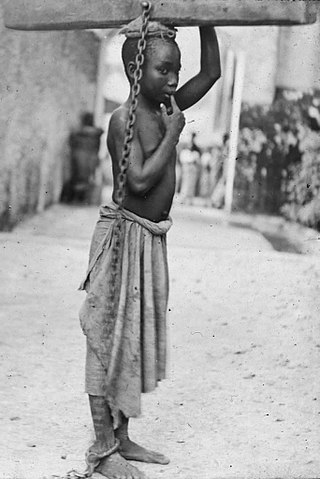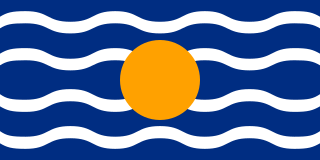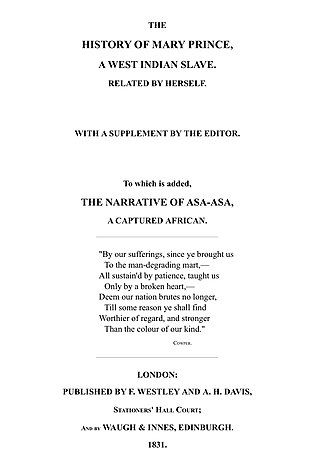Charles Wilton Wood Greenidge was the vice president of the Anti-Slavery Society in 1968. [1] He was secretary of the society from 1941 to 1956 and director from 1957 to 1958. [2]
Charles Wilton Wood Greenidge was the vice president of the Anti-Slavery Society in 1968. [1] He was secretary of the society from 1941 to 1956 and director from 1957 to 1958. [2]
Greenidge was born on 10 January 1889 in the parish of St James Barbados. He was the youngest son of Charles Joseph Greenidge, a member of the Colonial Parliament of Barbados the West Indies by his second wife, Edith Marion Wood. [3] He was a distant cousin of Abel Hendy Jones Greenidge. He was educated at Harrison College, Barbados, and then Downing College, Cambridge, where he read law.
He was appointed a Magistrate in St Kitts, Leeward Islands, in 1919 and Magistrate in Barbados in 1923. He rose to the office of Court of Appeal Judge in 1925. He then transferred to Port of Spain, Trinidad as a Magistrate in 1927. Later, he acted as Solicitor General and then-Attorney General as well as being a member of the Legislative Council. A further posting as Chief Justice of British Honduras followed in 1932–36. In 1936, he took up the post of Solicitor General of Nigeria where he remained for five years. He was a member of the Logang on Development of British Guyana and British Honduras in 1947 and appointed to the United Nations' Ad Hoc Committee of Experts on Slavery 1950–51. [4] Between 1958 and 1962, he was a member of the Legislative Council of Barbados.
When he was not posted overseas, he lived most of his life in Barbados, with a second home in Malta. He was unmarried and died 28 April 1972 in Nice, France.
The Greenidge family traced their ancestry in Barbados to John of Greenwich who left London on 2 May 1635 on Alexander . Within one generation the etymon, meaning Green Port or Trading Place (cf Norwich, Harwich Ipswich and Sandwich in England), he had assumed distinctly the surname of West Africa orthographic format of Greenidge of which he maintained a very similar phenomic identity.

Abolitionism, or the abolitionist movement, is the movement to end slavery and liberate slaves around the world.
Barbados is an island country in the southeastern Caribbean Sea, situated about 100 miles (160 km) east of Saint Vincent and the Grenadines. Roughly triangular in shape, the island measures some 21 miles (34 km) from northwest to southeast and about 14 miles (23 km) from east to west at its widest point. The capital and largest town is Bridgetown, which is also the main seaport.

British Honduras was a Crown colony on the east coast of Central America, south of Mexico, from 1783 to 1964, then a self-governing colony, renamed Belize in June 1973, until September 1981, when it gained full independence as Belize. British Honduras was the last continental possession of the United Kingdom in the Americas.

The West Indies Federation, also known as the West Indies, the Federation of the West Indies or the West Indian Federation, was a short-lived political union that existed from 3 January 1958 to 31 May 1962. Various islands in the Caribbean that were part of the British Empire, including Trinidad and Tobago, Barbados, Jamaica, and those on the Leeward and Windward Islands, came together to form the Federation, with its capital in Port of Spain, Trinidad and Tobago. The expressed intention of the Federation was to create a political unit that would become independent from Britain as a single state — possibly similar to Canada, the Federation of Australia, or the Federation of Rhodesia and Nyasaland. Before that could happen, the Federation collapsed due to internal political conflicts over how it would be governed or function viably. The formation of a West Indian Federation was encouraged by the United Kingdom, but also requested by pan-Caribbean nationalists.

The British West Indies (BWI) were the territories in the West Indies under British rule, including Anguilla, the Cayman Islands, the Turks and Caicos Islands, Montserrat, the British Virgin Islands, Bermuda, Antigua and Barbuda, the Bahamas, Barbados, Dominica, Grenada, Jamaica, Saint Kitts and Nevis, Saint Lucia, Saint Vincent and the Grenadines, British Honduras, British Guiana and Trinidad and Tobago.
The Barbados Labour Party (BLP), colloquially known as the "Bees", is a social democratic political party in Barbados established in 1938. It has been in power in 1954–1961, 1976–1986, 1994–2008, and 2018–present. Its leaders have included Grantley Adams and Owen Arthur.

Sir Grantley Herbert Adams, CMG, QC was a Barbadian politician. He served as the inaugural premier of Barbados from 1954 to 1958 and then became the first and only prime minister of the West Indies Federation from 1958 to 1962. He was a founder of the Barbados Labour Party (BLP), and he was named in 1998 as one of the National Heroes of Barbados.

Anti-Slavery International, founded as the British and Foreign Anti-Slavery Society in 1839, is an international non-governmental organisation, registered charity and advocacy group, based in the United Kingdom. It is the world's oldest international human rights organisation, and works exclusively against slavery and related abuses.
Sir Cuthbert Gordon Greenidge is a Barbadian retired cricketer who represented the West Indies in Test and One Day International (ODI) teams for 17 years, as well as Barbados and Hampshire in first-class cricket. Greenidge is regarded worldwide as one of the greatest and most destructive opening batsmen in cricket history. In 2009, Greenidge was inducted into the ICC Cricket Hall of Fame. He was a member of the squads which won the World Cups in 1975, 1979 and runners-up in 1983.

The emancipation of the British West Indies refers to the abolition of slavery in Britain's colonies in the West Indies during the 1830s. The British government passed the Slavery Abolition Act in 1833, which emancipated all slaves in the British West Indies. After emancipation, a system of apprenticeship was established, where emancipated slaves were required by the various colonial assemblies to continue working for their former masters for a period of four to six years in exchange for provisions. The system of apprenticeship was abolished by the various colonial assemblies in 1838, after pressure from the British public, completing the process of emancipation. These were the steps taken by British West Indian planters to solve the labour problems created by the emancipation of the enslaved Africans in 1838.

The term British West Indies refers to the former English and British colonies and the present-day overseas territories of the United Kingdom in the Caribbean.

Mary Prince was the first black woman to publish an autobiography of her experience as a slave, born in the colony of Bermuda to an enslaved family of African descent. After being sold a number of times and being moved around the Caribbean, she was brought to England as a servant in 1828, and later left her enslaver.
Greenidge is a surname. Notable people with the surname include:
Harrison College is a co-educational grammar school in Bridgetown, Barbados. Founded in 1733, the school takes its name from Thomas Harrison, a Bridgetown merchant, who intended it to serve as "A Public and Free School for the poor and indigent boys of the parish".

The Supplementary Convention on the Abolition of Slavery, the full title of which is the Supplementary Convention on the Abolition of Slavery, the Slave Trade, and Institutions and Practices Similar to Slavery, is a 1956 United Nations treaty which builds upon the 1926 Slavery Convention, which is still operative and which proposed to secure the abolition of slavery and of the slave trade, and the Forced Labour Convention of 1930, which banned forced or compulsory labour, by banning debt bondage, serfdom, child marriage, servile marriage, and child servitude.

Federal elections were held in the West Indies Federation for the first and only time on 25 March 1958. The result was a victory for the West Indies Federal Labour Party, which won 25 of the 45 seats in the House of Representatives.

According to the Constitution of Trinidad and Tobago, the supreme law of the nation, the attorney general and minister of legal affairs of Trinidad and Tobago is the primary legal advisor to the Government of Trinidad and Tobago.
Cyrus Prudhomme David was a Trinidad and Tobago lawyer, reformer, and member of the Legislative Council of Trinidad and Tobago. Born in Cedros in southwest Trinidad, David was mentored by author John Jacob Thomas and educated at Queen's Royal College in Port of Spain. He was one of the first non-white students to win an Island Scholarship, which allowed him to read law in Britain. After being called to the bar at Gray's Inn in 1889, David returned to Trinidad where he practiced law and became the secretary of the Legislative Reform Committee.

The Advisory Committee of Experts on Slavery (ACE) was a permanent committee of the League of Nations, inaugurated in 1933. It was the first permanent slavery committee of the League of Nations, which was founded after a decade of work addressing the issue of slavery by temporary committees within the League.

The Ad Hoc Committee on Slavery was a committee of the United Nations (UN), created in 1950. It investigated the occurrence of slavery on a global level. Its final report resulted in the introduction of the Supplementary Convention on the Abolition of Slavery of 1956.